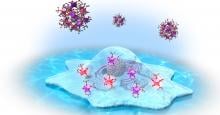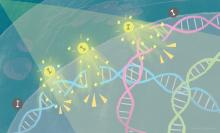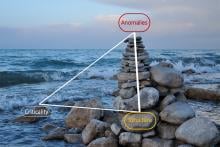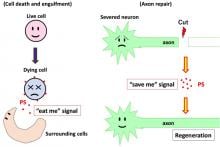Chemistry Molecular biology
News
15 May 2023
Researchers at Kanazawa University report in the Proceedings of the National Academy of Sciences of the United States of America (PNAS) high-speed atomic force microscopy experiments that show how ligands associated with stimulating and suppressing activation of the TRPV1 protein increase and decrease the molecule’s structural variations. The observations provide insights into how these heat- and chilli-sensing proteins function.
10 Mar 2023
Osaka Metropolitan University scientists successfully quantified the total reactive polysulfide content of 22 different types of vegetables, including onions and garlic. They also revealed that reactive polysulfides are not only found in the leek genus (Allium), such as onions and garlic but also in the cruciferous family of vegetables (Brassicaceae), such as broccoli and cabbage.
14 Jul 2021
Researchers have found a way to enhance radiation therapy using novel iodine nanoparticles.
29 Oct 2020
Scientists at The University of Tokyo use a two-state model based on the formation of tetrahedral structures to explain water’s anomalous properties and the surprising liquid–liquid transition of water.
07 Sep 2018
Researchers at Nagoya University, Japan, have developed a spontaneous polymer network synthesis that allowed for the preparation of gels containing narrow molecular weight distribution polymers. The gel networks showed swelling properties that were responsive to temperature and solvent concentration.
27 Aug 2018
Researchers at Nagoya University have identified the series of molecules involved in the regeneration of damaged nerves in roundworm, showing that it largely overlaps with the signals used by the intrinsic removal system to take up and process dying cells.
Events
Sorry, nothing coming up for this discipline
Researchers
Sorry, nothing coming up for this discipline
Giants in history
Sorry, nothing coming up for this discipline








